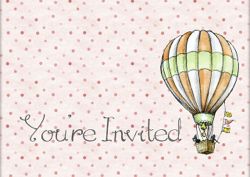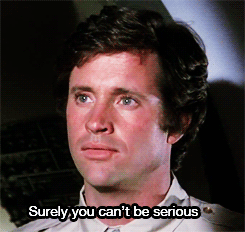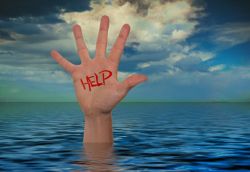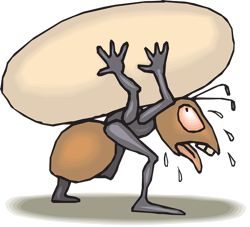Creative people often need to say “no” when they say “yes.”
Do you know Meghan Trainor’s hit, simply called “NO?”
Personally, I can’t help but sing along with the tune. But beyond its catchiness, the lyrics got me thinking:
Writers too often say “yes” when they should say “no.”
This song could be a good one for writers to sing on a regular basis.
Why?
Because too often, we let other things come first.
 1. When others want to take over your writing time…no.
1. When others want to take over your writing time…no.
You know how it goes. Someone needs something, and some people are really good at making you feel guilty.
What are you doing, anyway? You can write later, can’t you? I just need you for a little while. Surely you can budge on your schedule a little. After all, this is really important.
We buckle. We start to feel like we’re selfish. It’s true—we could write later, we think.
But you know how it feels. You know the resentment that builds inside when you allow your writing time to be trampled on. You know how hard it is to do it “later.”
Come on, just this once.
No. No, it’s impossible. My name is “no.”
 Creative People Tip 2. When you get invitations to do things that don’t matter to you…no.
Creative People Tip 2. When you get invitations to do things that don’t matter to you…no.
Most of the time, these invitations mean delays. Less time to do your work. Wasted time.
That doesn’t mean you have to write all the time, but it is important to do more of the things that really matter to you, and less of those that don’t.
Management writer Peter Drucker said, “…productivity in my experience consists of NOT doing anything that helps the work of other people but to spend all one’s time on the work the Good Lord has fitted one to do, and to do well.”
Creative people create. We’re all busy. We need to be more choosy with the projects we take on.
“Saying ‘no’ has more creative power than ideas, insights and talent combined,” says Kevin Ashton, the co-founder of the MIT Auto-ID Center, who also quoted the statement above. (I highly recommend you read the article in its entirety.)
Think about the cost of the time you’re spending on other things. Make sure they’re worth that time.
Otherwise, uh, no. Sorry.
“But you know what?” says fantasy author Juliet E. McKenna. “I have never, not once, regretted saying no. Writing is mine—and it would be foolish to let a general sense of obligation to the world at large chip away at it.”
 3. When others give you free advice…no, unless it’s Margaret Atwood.
3. When others give you free advice…no, unless it’s Margaret Atwood.
Everyone loves to give advice, especially the unsolicited kind.
Most of the time, their intentions are good, but the results for creative people can be disastrous.
We tend to carry around a lot of self-doubt. We cling to what other people think. When we hear someone’s opinion, we noodle it in our minds and manage to convince ourselves that hey, maybe they’re right.
Then we go back and ruin our stuff.
No. Bad idea.
“You should write a mystery, you know, make the hero find a dead woman in his garage, and then you could have her tell her husband about it, and then like, he acts all uncomfortable, and you know, fill in the blanks, and like maybe the husband could turn out to be part of the CIA! That would be cool.”
The advice can come from a lot of sources. Friends, family, neighbors, even beta readers. Most of it should go in one ear and out the other. Sometimes even those in your critique group need to be ignored.
Trust your own gut first, unless you’re getting advice from Margaret Atwood. Then you might want to listen.
 Creative People Tip 4. When other authors complain about a publisher…don’t sign that contract.
Creative People Tip 4. When other authors complain about a publisher…don’t sign that contract.
Before you sign a publishing contract, always check with the other authors, the ones who have already been published by the company.
Find them online. Email them. Ask them about their experiences. You’ll be surprised at what you’ll learn.
Most authors are happy to share. What the editing process was like. Whether or not they were happy with the outcome. How the publisher is about paying royalties. You can learn a lot by asking a few questions.
If the authors aren’t happy, chances are you won’t be either. Keep looking. Tell that publisher thanks, but no thanks. Find a publisher that makes their authors happy.
 5. When you start allowing small tasks to take over your big ideas…no!
5. When you start allowing small tasks to take over your big ideas…no!
Writing is scary. The blank page can cause even the most productive person to procrastinate.
Particularly when you get a new idea and it excites you and you get that tingling feeling all over because you’re so psyched, don’t be surprised if you put off getting started.
Suddenly browsing Twitter, Facebook, and Pinterest become much more important. (Or washing the dishes, or rearranging the sock drawer, or Googling yourself.)
This is only fear—fear that what you write won’t be good enough. But creative people produce. It’s only when we have a lot of material that we have a chance of finding something worthwhile in the pile.
When you find yourself squandering away your time on something that will make absolutely no difference to your future, stop.
Put it away.
Realize that time you spent is time you’ll never get back. Ever.
No, no, no.
 Creative People Tip 6. When relationships drain away all your motivation…you’ve got to let it go.
Creative People Tip 6. When relationships drain away all your motivation…you’ve got to let it go.
We’ve all experienced them, those relationships that suck up all our energy and emotion. The ones where we’re always being told we’re not good enough, or not living up to some ideal, or not doing things right.
The ones where we feel like we’re constantly banging our heads against the wall, and little by little, we lose our motivation to do anything. Our desire to create slips out the window, as easily as the spring air.
These kinds of relationships are toxic, particularly to creative people who are often even more affected by them. They heighten self-doubt, destroy confidence, and chip away at good health.
Positive people bring us up, and the negative ones can do more than bring us down—they can downright wipe us out.
Kick in with your self-preservation. Let it go. Preserve your energy for your work.
 7. When you start feeling run down, exhausted, and dead…stop!
7. When you start feeling run down, exhausted, and dead…stop!
Creative people are prone to burnout. We often have to do our work on our own time, after we finish our day jobs (and taking care of our families). We need to take care of ourselves, but we often neglect that job, expecting we’ll keep going as long as we will ourselves to.
But the body and mind don’t work that way. Over time, the body breaks down. We get sick more often, struggle with aches and pains, and if we’re not careful, end up with serious illnesses like diabetes and heart disease.
Our minds suffer, too. We run out of ideas, lose focus, and watch our motivation go out the window.
“But honestly,” says writer Elizabeth Bear, “when your reaction to being invited to a project is a spike of panic, that’s when you need to back off yourself. Burnout is a real thing, and it’s really prevalent in creative professions and ones with intense schedules.”
How productive we are depends on how good we feel. That means we must put in place a daily regimen of good self-care that includes eating well, moving frequently, and incorporating some way of relieving stress (like meditation, yoga, tai chi, daily walks, time with loved ones, art therapy, etc.) We also need to schedule more time off. A weekend away every couple months.
If you notice the symptoms (fatigue, depression, illness, weight gain), stop and regroup. Say no to the unhealthy lifestyle and yes to staying in shape for a lifetime of creativity.
 Creative People Tip 8. When others try to make you feel like it’s all useless…blah blah blah.
Creative People Tip 8. When others try to make you feel like it’s all useless…blah blah blah.
There’s no shortage of people, articles, and news trying to convince writers that the publishing world’s going to hell in a handbasket.
The market is flooded. The big publishers take only the most successful of writers. Unknown writers don’t have a chance. Writers not only have to write, but to do all their marketing, too. There’s no room for a new writer to succeed.
Even if some of this is true, it doesn’t do any good to get into a negative mindset about it all. We can learn. Take classes to find out how to navigate this new world. Practice and become better writers. Try out some of the new avenues that are available to us (like self-publishing).
Allowing ourselves to be dragged down by the naysayers does nothing but hurt us. There’s no purpose to it.
If you find yourself sliding down this dangerous slope, put on the brakes. Find some writers who are excited by what they’re doing and soak up their attitudes. That’s the way to success.
Ignore the blah blah blah.
 9. When you find yourself limiting your options…no.
9. When you find yourself limiting your options…no.
Sometimes we get in a rut.
We think we have to find an agent to succeed. Or we have to get a publishing contract.
The truth is, the only thing that matters is that we create. If we are creative people and we enjoy creating, whether that be through writing, painting, composing, or other methods, we need to make sure we focus on that and stay open to our options.
There are many places our creativity can take us. Maybe we can get an agent, but then again, maybe we’d do well self-publishing. We are made to blog, or maybe blogging would only take up our precious time. It would be cool to teach others, speak at events, create online courses, or direct our creativity in other unique ways.
Writing letters for people, for instance, or using our writing skills for advocacy may be other avenues for our talents. Freelance or technical writing, graphic design, video production, or writing poetry at local events are other possible paths.
Limiting our options can make us blind to the real path that lies before us. Keep your eyes open, and say “no” to limits.
 10. When your belief in yourself starts to wane…no, no, no!
10. When your belief in yourself starts to wane…no, no, no!
After a rejection, critique, or bad review. During a period of writer’s block, or when you’re working on the infamous “sophomore” second novel. When your books don’t sell well. When you fail to place in your twentieth contest.
The reasons are endless. Truth is, we’re much too willing to lose belief in ourselves. But belief is all that we have.
Writers work for long periods of time with little to no feedback. We have to believe in ourselves to make it through. We have to have faith that it’s going to work out, that what we’re doing is going to be worthwhile.
That belief doesn’t come from anyone else. It comes only from ourselves. And there are way too many things and people and changes in the world that can shake that belief.
That means we have to be vigilant. We have to pump ourselves up on a regular basis. Review those good comments we’ve received. Read through a piece of writing we’re proud of. Remind ourselves of how far we’ve come. Read about those people who inspire us. Attend events that lift us up.
There’s a reason John Steinbeck said this:
“The writer must believe that what he is doing is the most important thing in the world. And he must hold to this illusion even when he knows it is not true.”
(New York Times, 2 June 1969)
We all know that there are more important things. The health of our families, for one. But if we’re to keep going, and do the work we feel compelled to do, we have to believe at the level Steinbeck was talking about.
Because the alternative is failure.
And to that, you need to say “no.”
“Life is short and brutal,” says writer Jamie Grove. “You must find your belief or watch as your visions are washed away beneath the waves. You must believe in your work and press forward.”
Have you gotten better at saying “no” to the things that don’t serve your creative work? Please share your thoughts.


So many great points here! I can especially identify the fear of getting started on an exciting new idea. Counter point, though, is to not be afraid to say yes to a new opportunity, like writing in a new genre, teaching a new class, or tackling a new project. Say yes if you are challenged to step beyond your comfort zone and expand your skills.
Great idea, Pam. Maybe I need to do a “yes” post next! ;o)
Learning to say no takes a long time — early in our lives we spend so much effort seeking approval from adults and from our peers. It’s hard to unlearn a habit like that.
So true, Pat. And you’re right—it’s totally a habit, which means we can change it! :O)
Good points, Colleen. Saying no to my own family is the hardest — and sometimes not even appropriate. But nevertheless, I find time to write. And play horn!
Thanks, Ann! Yes, both are important! :O)